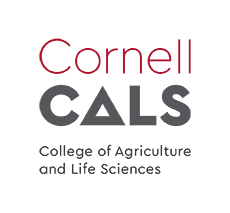Cornell University College of Agriculture and Life Sciences
Ithaca, NY
Founded in 1865
Any person ... any study

Urban
setting
23,600
Students
14%
Acceptance Rate
$37,880 / $56,550
Tuition In-state / Out-of-state
Overview
School Website >>The College of Agriculture and Life Sciences is a pioneer of purpose-driven science and home to Cornell University’s second largest population of students, faculty, and staff. We work across disciplines to tackle the challenges of our time through world-renowned research, education and outreach. The questions we probe and the answers we seek focus on three overlapping concerns: natural and human systems; food, energy and environmental resources; and social, physical and economic well-being. The Cornell CALS experience empowers us to explore the boundaries of knowledge, supported by the leading minds of today and surrounded by the leading minds of tomorrow.
Agricultural Degrees Offered
- Agricultural Sciences
- Animal Sciences
- Applied Economics and Management
- Atmospheric Science
- Biological Engineering
- Biological Sciences
- Biology and Society
- Biometry and Statistics
- Development Sociology
- Earth and Atmospheric Sciences
- Entomology
- Environmental and Sustainability Sciences
- Environmental Engineering
- Food Science
- Global and Public Health Sciences
- International Agriculture and Rural Development
- Landscape Architecture
- Nutritional Sciences
- Plant Sciences
- Viticulture and Enology
Admissions
Total Enrollment: 23,600
Male Female Student Ratio: 47%/53%
Acceptance Rate: 14%
Applying
Application Fee: $80
Application Deadline: November 1
Target SAT Score: 1470
Target ACT Score: 33
Tuition
In-State: $37,880
Out-of-State: $56,550
Student Fees: $1,520
Room and Board: $10,360
More Info
Religious Affiliation: non-denominational
Faculty/Student Ratio: 9/1
Dilmun Hill Student Farm
Dilmun Hill is the student-run farm that has been practicing sustainable agriculture on Cornell University's campus for more than a decade. Its mission is to provide students with opportunities for experiential learning, group collaboration and research. Throughout the year it hosts work parties where volunteers work in the fields and experience the latest in sustainable ag practices. The student managers and steering committee members collaborate with the Organic Coordinator and Faculty Advisors to provide leadership in farm operations and disseminate information through education and outreach. It also collaborates with various organizations on campus, such as MacDaniels Nut Grove (MNG). Our popular campus farm stand offers Dilmun Hill produce for sale from June through October and we supply local produce to Cornell Dining and Manndible Café in season.